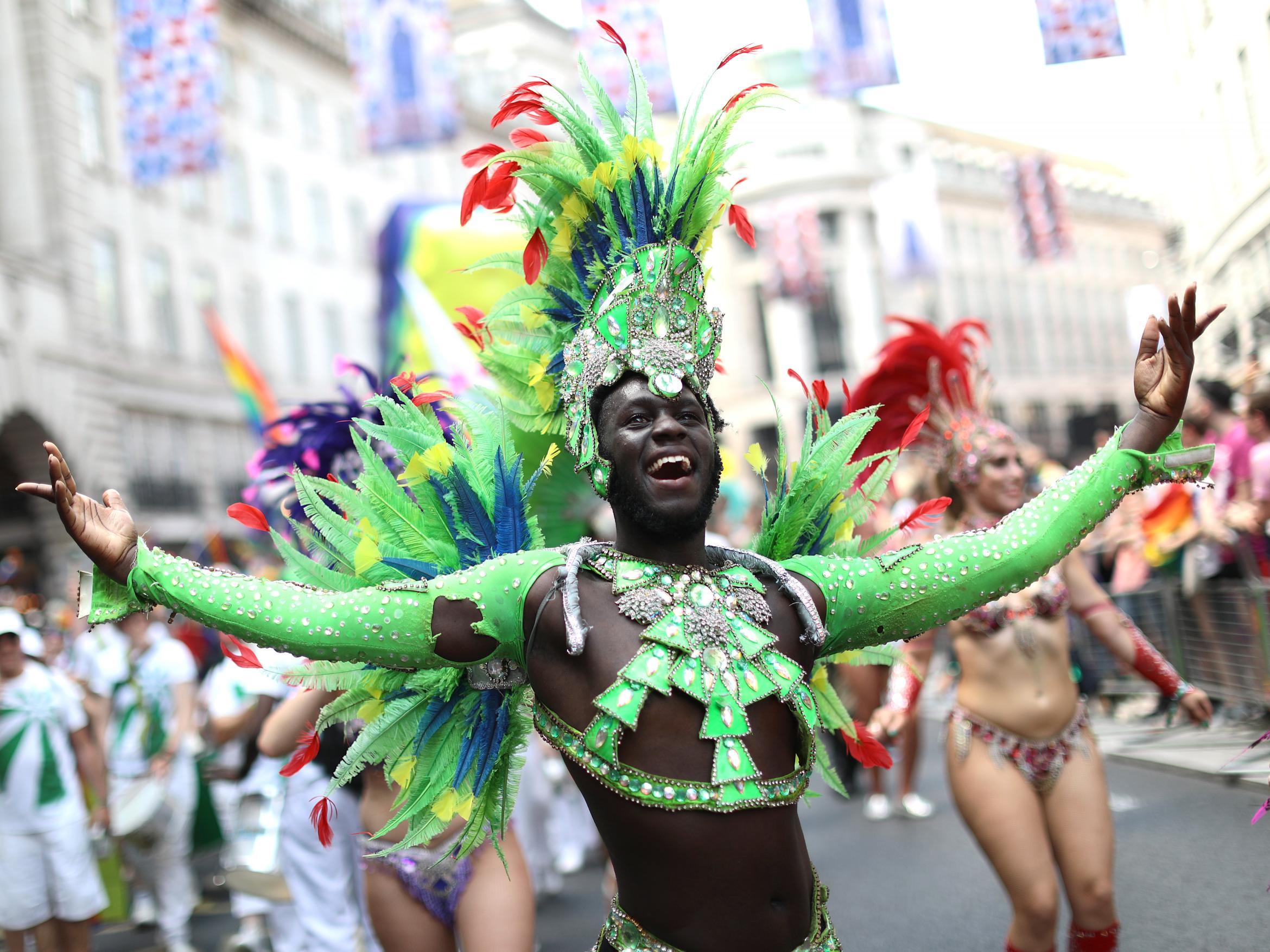I used to embrace ‘rainbow capitalism’ - but now I realise it can blind us to the work needed to end social injustice
If we truly want to celebrate and honour Pride this year, we must hold the companies that claim to support us to account


Pride looks rather different this year. In a somewhat ironic turn of events, a celebration of "coming out" has seen us locked away in our homes, trading exuberant street parades for zoom calls and livestreams.
If there’s one thing which the Covid-19 pandemic hasn’t stopped, however, it’s the increasing onslaught of brand endorsements which have come to give Pride a distinctively shiny, corporate-sponsored veneer.
As a 23-year-old bisexual man who came out last year, I cannot overemphasise the value which representation has for queer youths. I may have had the fortune of growing up in a relatively open-minded environment, in spite of rampant casual homophobia at school, but it was the distinct lack of acknowledgement of LGBT+ identities in all facets of everyday life (other than as the butt of a joke or the quirky supporting character in American sitcoms) that made me reluctant to publicly reveal my true self.
As someone who’s always had a lot to say and loathes the idea of being pigeonholed, not going public almost felt like a way of preserving my identity from the invasive stereotypes which others would bestow upon it.
It’s for this reason that I can distinctly recall the first time I saw an ad celebrating Pride – a billboard for a vodka, which I came across in London while riding the Tube. I’d never witnessed such an open, consumerist endorsement of LGBT+ rights. It felt strange, yet also profoundly comforting.
Seeing business titans parading rainbow flags and messages in support of the queer community was a subtle way of saying “you’re wanted. You’re part of the group. You’re mainstream.” While I wouldn’t want to reduce the beginning of my coming out process to a mere liquor commercial, it’s undeniable that the increasing exposure and normalisation of LGBT+ issues helped me feel more comfortable in opening up to those around me.
Consequently, I came to embrace "rainbow capitalism". I’ve always leaned to the left politically, yet I would roll my eyes at those who lashed out against the "performative" activism of major corporations and high-profile figures, seeing it as a form of ideological puritanism which ignored the life-changing impact which such displays of inclusivity could have for people like myself.
Come 2020, however, and my attitudes have changed. This isn’t to say that representation isn’t still vitally important, but I’ve come to realise that the "rainbow capitalism" which I’d so enthusiastically welcomed is part of the problem itself.
If George Floyd’s killing in Minneapolis last month globally reawakened the urgent need to dismantle institutional racism, it’s time we effectively tackled the underlying system of queerphobia which continues to oppress LGBT+ people around the world – a system from which "rainbow capitalism" distracts us, for all of the sentiment that can be behind it.
To borrow the terminological framework from Peggy McIntosh’s essay on white privilege, homophobia and other forms of anti-LGBT+ prejudice are often perceived in specific acts of hostility as opposed to the "invisible" systems which perpetuate them. Queerphobia is not just an individualised social phenomenon – it’s an economic issue, with LGBT+ people, especially those who are working-class and/or of colour, being disadvantaged in employment and at added risk of poverty and homelessness.
Rainbow capitalism from corporations, with focus group-approved "woke" inclusivity, can stop people concentrating on the systems which exploit and oppress the community these companies claim to endorse. Paraphrasing a particularly apt viral tweet in response to the US Supreme Court’s recent ruling to keep protections for LGBT+ individuals in the workplace, queer people, especially those who are trans and black, may not be getting fired – but are they actually being hired?
The statistics show that the labour market is still tilted against against the LGBT+ community, a problem which won’t be solved by putting up a rainbow logo every June on Twitter. Even worse is when Pride-supporting companies fail to act out effectively against homophobia themselves or other acts.

Most of all, however, rainbow capitalism ultimately clashes against the fundamental purpose of Pride – which was obtaining the full and radical liberation of LGBT+ individuals. Stonewall, whose anniversary we’re celebrating, was a riot led by poor, disenfranchised queer people of colour against police brutality. Obtaining social justice for our community calls for both changing the world around us and questioning many of the narratives we’ve been taught since childhood, not begging for acceptance from those who have and continue to fuel our oppression.
For this to be effective, it must be part of the intersectional fight against all unjust structures. The exploitative nature of capitalism keeps swathes of people in miserable conditions around the world. If there’s one thing that Pride should teach us, it’s that an attack on one underprivileged or marginalised community is an attack against all.
If we truly want to celebrate and honour Pride this year, we must hold the companies that claim to support us to account, by demanding they put they money where their mouth is and actively commit to improving the treatment of their workers, and not just those who are LGBT+. We have to campaign to ensure we vote in politicians who are committed to fighting against systemic injustices. We need to read about LGBT+ history and inform ourselves on the continuing violence and brutality against queer people.
As fun and carefree as rainbow playlists and livestreams may be, it’s time we looked beyond the façade to the gritty work that still needs to be done.
Join our commenting forum
Join thought-provoking conversations, follow other Independent readers and see their replies
Comments
Bookmark popover
Removed from bookmarks